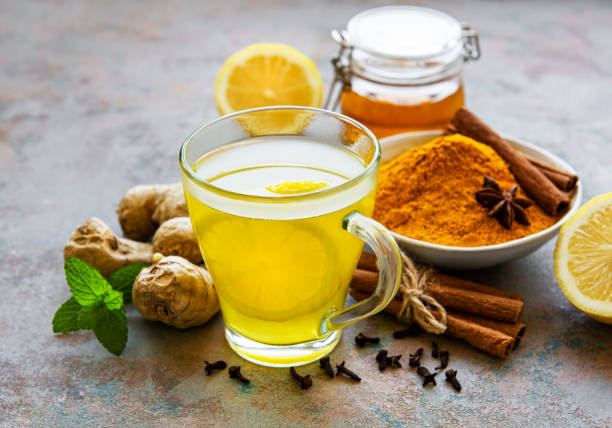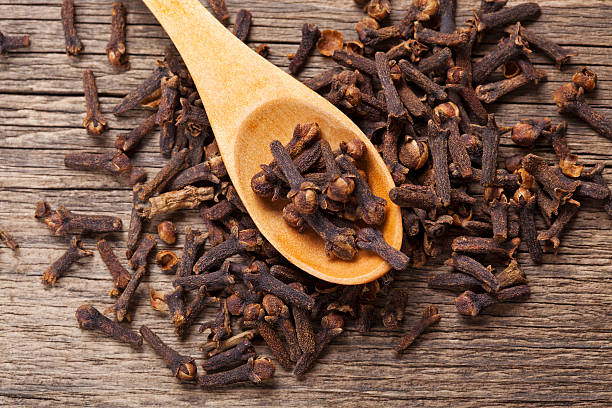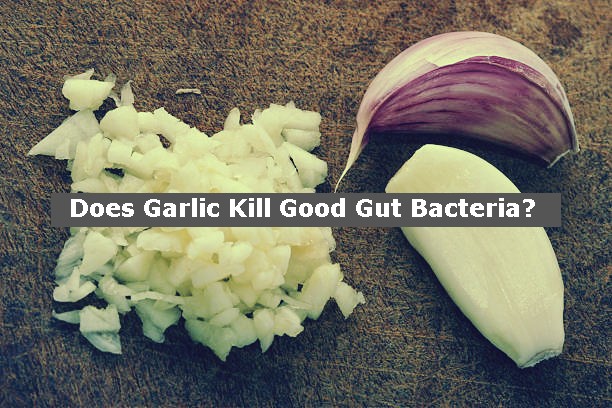Does Ginger Worsen Ulcer? Let’s Find Out ……….
Table of Contents
Introduction
Brief overview of ulcers and their prevalence
Ulcers, characterized by open sores that develop on the lining of various organs like the stomach and small intestine, have long plagued a significant portion of the population. Peptic ulcers, which affect the stomach lining and the upper part of the small intestine, are among the most common. These painful lesions can lead to discomfort, pain, and even serious complications if left untreated.
Introduction to ginger as a popular natural remedy
Ginger, a versatile herb known for its unique flavor and potential health benefits, has been used for centuries as a natural remedy for various ailments. From soothing an upset stomach to reducing inflammation, ginger has garnered attention for its potential healing properties.
The common belief that ginger might exacerbate ulcers
A persistent concern that often arises is whether ginger could worsen ulcers. With its pronounced flavor and potential impact on the digestive system, it’s crucial to delve into this topic (Does Ginger Worsen Ulcer?) and determine whether this belief is grounded in scientific evidence or simply a misconception.
Understanding Ulcers
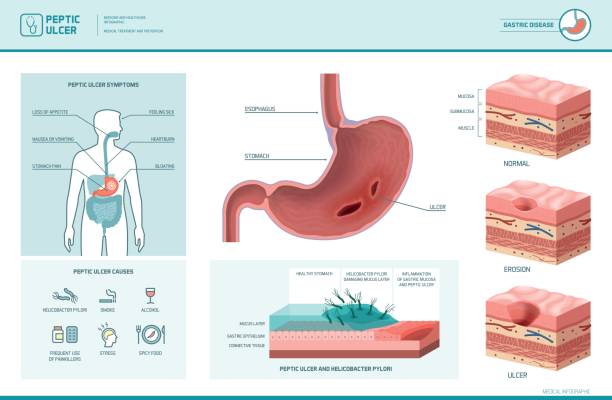
Explanation of what ulcers are and their types
Ulcers, in essence, are open wounds that develop when the protective lining of the digestive tract breaks down.
Peptic ulcers (a sore on the lining of your stomach, small intestine, or esophagus), including gastric ulcers that form in the stomach and duodenal ulcers that occur in the upper part of the small intestine, are common forms. These ulcers can result from a range of factors, including Helicobacter pylori infection, stress, and the use of nonsteroidal anti-inflammatory drugs (NSAIDs) like aspirin and ibuprofen.
Factors contributing to ulcer development
Here are some of the key factors that contribute to ulcer development:
Infection:
Bacterial, viral, or fungal infections can weaken the tissue and lead to ulcer formation. For example, stomach ulcers are often caused by the Helicobacter pylori bacteria.
Poor Blood Circulation:
Reduced blood flow to a specific area can result in tissue damage and ulcers. Conditions like peripheral artery disease and diabetes can lead to poor circulation and increase the risk of ulcers, particularly in the lower extremities.
Pressure:
Prolonged pressure on a specific area of the body can cause skin breakdown and the formation of pressure ulcers, commonly known as bedsores. This is common in individuals who are bedridden or wheelchair-bound.
Diabetes:
People with diabetes are at a higher risk of developing ulcers due to nerve damage (neuropathy) and reduced blood flow to the extremities. These ulcers often occur on the feet and can be difficult to heal.
Venous Insufficiency:
When the veins in the legs have difficulty sending blood back to the heart, it can lead to the pooling of blood, swelling, and the development of venous ulcers (leg ulcers caused by problems with blood flow (circulation) in your leg veins.).
Immune System Dysfunction:
Certain autoimmune disorders, like rheumatoid arthritis or lupus, can lead to ulcers. These ulcers are often related to the immune system attacking healthy tissue.
Medications:
Long-term use of certain medications, such as non-steroidal anti-inflammatory drugs (NSAIDs) and corticosteroids, can weaken the lining of the stomach and contribute to the development of gastric ulcers (sores that develop on the lining of the stomach).
Smoking:
Smoking impairs blood flow and slows the healing process, making individuals who smoke more susceptible to ulcer formation.
Alcohol Abuse:
Excessive alcohol consumption can damage the lining of the stomach and intestines, increasing the risk of ulcers in the gastrointestinal tract.
Stress:
While stress itself may not directly cause ulcers, it can exacerbate underlying conditions that contribute to their development, such as gastric acid production in the case of peptic ulcers.
Genetics:
Some individuals may have a genetic predisposition to developing certain types of ulcers or conditions that increase ulcer risk.
Trauma or Injury:
Physical trauma, burns, cuts, or other injuries can damage tissue and lead to ulceration if not properly treated.
Malnutrition:
Inadequate intake of essential nutrients can impair tissue repair and weaken the body’s ability to fight infections, increasing the risk of ulcer development.
Chronic Diseases:
Conditions like Crohn’s disease, ulcerative colitis, and certain cancers can contribute to ulcer formation in the digestive tract.
Symptoms and complications associated with ulcers
Ulcers often present with burning pain, bloating, and indigestion. If not managed, they can lead to complications such as bleeding, perforation of the stomach lining, and even an increased risk of stomach cancer.
Ginger: Nature’s Remedy
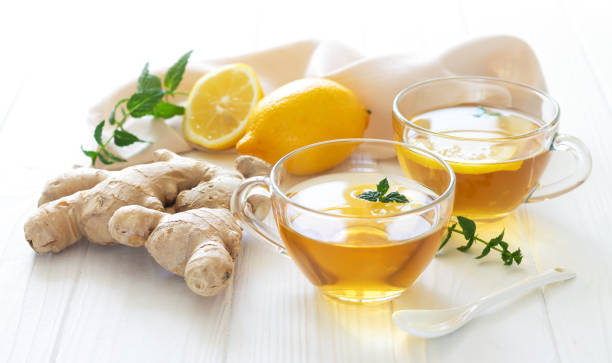
Introduction to Ginger and its historical medicinal use
Ginger, with its aromatic and tangy qualities, has a rich history in traditional medicine. Cultures worldwide have embraced its use to alleviate ailments and enhance well-being.
Nutritional composition of ginger
Ginger is rich in bioactive compounds, notably gingerol, which contributes to its distinctive flavor and holds potential antioxidant and anti-inflammatory properties. These properties form the basis of ginger’s reputed health benefits.
Here’s a basic nutritional composition of ginger per 100 grams:
| Nutrient | Amount |
| Calories | 80 kcal |
| Carbohydrates | 17.77 g |
| – Sugars | 1.7 g |
| Dietary Fiber | 2 g |
| Protein | 1.82 g |
| Fat | 0.75 g |
| – Saturated | 0.203 g |
| – Monounsaturated | 0.038 g |
| – Polyunsaturated | 0.208 g |
| Vitamins | |
| – Vitamin C | 5 mg |
| – Vitamin B6 | 0.16 mg |
| – Folate | 11 µg |
| Minerals | |
| – Potassium | 415 mg |
| – Magnesium | 43 mg |
| – Phosphorus | 34 mg |
| – Iron | 0.6 mg |
| – Calcium | 16 mg |
| – Zinc | 0.34 mg |
Note: These values can vary slightly based on factors such as growing conditions, variety, and the specific testing method used.
Health Benefits of Ginger
Ginger is a versatile spice that has been used for centuries for its potential health benefits. Here are some of the well-known health benefits of ginger:
Anti-Inflammatory Properties: Ginger contains compounds like gingerol, which have potent anti-inflammatory effects. It may help reduce inflammation in the body, potentially benefiting conditions like osteoarthritis and other inflammatory disorders.
Digestive Health: Ginger has long been used to aid digestion. It can stimulate the production of digestive enzymes, improve the absorption of nutrients, and alleviate gastrointestinal discomfort, bloating, and indigestion.
Nausea and Morning Sickness: Ginger is known for its anti-nausea properties. It can be particularly helpful in reducing nausea and vomiting caused by pregnancy (morning sickness), motion sickness, and chemotherapy-induced nausea.
Pain Relief: The anti-inflammatory properties of ginger can also contribute to pain relief. It might help alleviate pain from conditions like osteoarthritis, menstrual cramps, and muscle soreness.
Heart Health: Some studies suggest that ginger may have a positive impact on heart health by reducing blood pressure and cholesterol levels. It could contribute to a lower risk of heart disease.
Immune System Support: Ginger contains antioxidants that can help strengthen the immune system and protect the body from oxidative stress. This may contribute to better overall health and disease prevention.
Weight Management: Ginger has been shown to enhance metabolism and reduce appetite. Including ginger in your diet might aid in weight management efforts.
Diabetes Management: Preliminary research indicates that ginger may have a positive effect on blood sugar levels. It could help regulate insulin sensitivity and reduce complications related to diabetes.
Cancer Prevention: Some studies have suggested that the compounds in ginger may have anti-cancer properties. However, more research is needed to establish its role in cancer prevention.
Respiratory Health: Ginger’s anti-inflammatory and antimicrobial properties might be beneficial for respiratory health. It may help ease symptoms of respiratory infections and improve lung function.
Brain Health: There is ongoing research into the potential cognitive benefits of ginger. Some studies suggest that its antioxidants and anti-inflammatory compounds could have a protective effect on brain health.
Pregnancy and Menstrual Discomfort: Ginger can help alleviate menstrual cramps and nausea during pregnancy. However, pregnant individuals should consult their healthcare provider before using ginger supplements or large amounts of ginger.
Does Ginger Worsen Ulcer?

No, ginger does not inherently worsen ulcers. Emerging research suggests that ginger might have anti-ulcerogenic effects. Contrary to the common belief, ginger may not exacerbate ulcer symptoms or contribute to ulcer formation.
Origins of the belief that ginger might worsen ulcers
The confusion might arise due to ginger’s natural spiciness, leading some to assume that it could irritate ulcers or increase stomach acid production.
Studies and research suggest the anti-ulcerogenic effects of ginger
Recent studies have indicated that compounds in ginger could help protect the gastric lining, potentially reducing the risk of ulcers. source
Expert opinions on the ginger-ulcer relationship
Experts highlight the need to consider the overall diet and lifestyle when evaluating ginger’s impact on ulcers. For most people, moderate ginger consumption is unlikely to pose a risk. source
Ginger’s Potential Positive Effects on Ulcers
Here are some potential positive effects of ginger on ulcers:
Anti-Inflammatory Properties: Ginger contains compounds called gingerols, which are known for their anti-inflammatory effects. Inflammation plays a role in the development and progression of ulcers, and ginger’s anti-inflammatory properties might help reduce inflammation in the stomach lining, potentially aiding in ulcer healing.
Stomach Lining Protection: Some research suggests that ginger may help stimulate the production of mucus in the stomach. This mucus can act as a protective barrier for the stomach lining, guarding it against stomach acid and digestive enzymes that can contribute to ulcer formation.
Anti-Oxidant Effects: Ginger contains antioxidants that can help neutralize harmful free radicals in the body. Oxidative stress is thought to be involved in the development of ulcers, and the antioxidant properties of ginger might help counteract this oxidative damage.
Promotion of Blood Flow: Ginger has been suggested to improve blood circulation, which could potentially aid in delivering nutrients and oxygen to the stomach lining, supporting the healing process of ulcers.
Reduction of Nausea: Ginger is well-known for its ability to reduce nausea and vomiting, which are common symptoms associated with ulcers and their treatments. By reducing these symptoms, ginger might indirectly improve a person’s ability to tolerate food and medications necessary for ulcer healing.
Bacterial Inhibition: Some studies have suggested that certain compounds in ginger have antibacterial effects against H. pylori, a bacterium that is associated with the development of certain types of ulcers.
If you’re considering using ginger as part of your ulcer management, here are a few tips:

- Consult a Healthcare Provider: Discuss your plans with a doctor before using ginger, especially if you’re currently on any medications or have other health conditions.
- Moderation: Like any remedy, moderation is key. Excessive consumption of ginger could potentially lead to adverse effects, such as digestive discomfort.
- Form of Consumption: Ginger can be consumed fresh, as a tea, in powdered form, or as a supplement. Choose a form that suits your preferences and needs, but be cautious with concentrated ginger supplements.
- Monitor Your Symptoms: Keep track of how your body responds to ginger consumption. If you notice any adverse effects or if your symptoms worsen, stop using ginger and consult a healthcare professional.
Conclusion – Does Ginger Worsen Ulcer?
We’ve explored the intersection of ginger and ulcers, debunking the common belief that ginger worsens ulcers and delving into the potential benefits of ginger consumption.
While individual responses can vary, scientific evidence suggests that moderate ginger consumption is unlikely to worsen ulcers and might even have protective effects.
As with any health-related topic, it’s essential to make informed choices. Consulting healthcare professionals and heeding individual reactions can guide decisions on incorporating ginger into one’s diet.
In conclusion, the question Does Ginger Worsen Ulcer? is a NO that can be dispelled with evidence-based information. Ginger, with its array of potential health benefits, may even hold promise in promoting gastric health and ulcer prevention. As with all dietary changes, moderation, and individual consultation remain key in harnessing the potential benefits of nature’s remedies.

